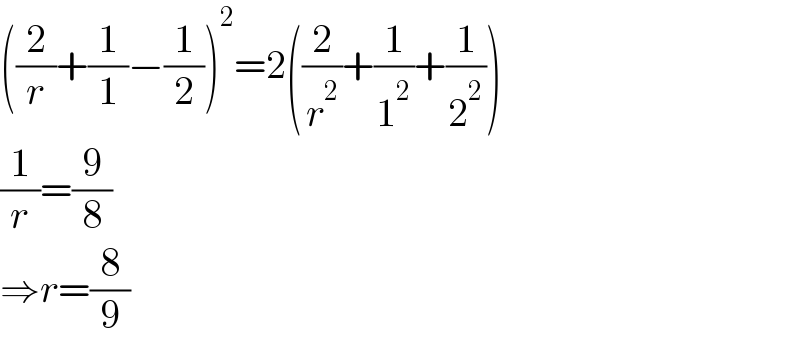Question Number 167058 by cortano1 last updated on 05/Mar/22

Answered by mr W last updated on 05/Mar/22

$$\left(\frac{\mathrm{2}}{{r}}+\frac{\mathrm{1}}{\mathrm{1}}−\frac{\mathrm{1}}{\mathrm{2}}\right)^{\mathrm{2}} =\mathrm{2}\left(\frac{\mathrm{2}}{{r}^{\mathrm{2}} }+\frac{\mathrm{1}}{\mathrm{1}^{\mathrm{2}} }+\frac{\mathrm{1}}{\mathrm{2}^{\mathrm{2}} }\right) \\ $$$$\frac{\mathrm{1}}{{r}}=\frac{\mathrm{9}}{\mathrm{8}} \\ $$$$\Rightarrow{r}=\frac{\mathrm{8}}{\mathrm{9}} \\ $$
Commented by cortano1 last updated on 05/Mar/22

$$\mathrm{Descartes}\:\mathrm{theorem}? \\ $$
Commented by mr W last updated on 05/Mar/22

$${yes} \\ $$
Commented by Tawa11 last updated on 05/Mar/22

$$\mathrm{Great}\:\mathrm{sir} \\ $$
